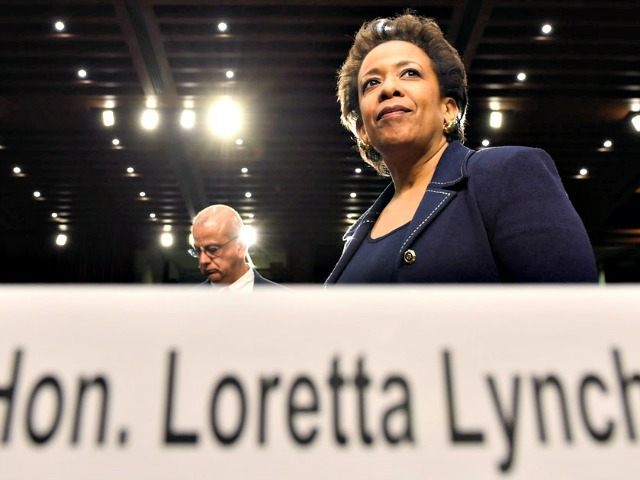Attorney General Loretta Lynch acknowledges an increase in drug trafficking of heroin and cocaine via the Mexico border.
Before a Senate Judiciary Committee hearing Wednesday, Lynch testified, “Certainly the Mexican border is a major trans-shipment point for heroin and cocaine. Which is a shift from where it was 20 years ago.” Lynch was responding when Sen. Jeff Sessions (R-AL) asked about the need for a secure border to combat the ongoing drug epidemic in the United States.
Sessions concurred that there has been a shift since his tenure as a prosecutor, when drugs were smuggled into the U.S. via airplanes and boats. He argued that the trend has moved to the southern border.
“It has certainly grown to rival other areas, although I would hesitate to say that we take our attention away from the ports — as you noted — the ships and the boats and the northern border also,” Lynch responded.
The Alabama lawmaker took issue with her answer, saying that he thinks drugs from the Mexican border “clearly is the majority.”
Sessions further pointed to a decline in drug prosecutions despite “surging” drug use — with a six month average down 21 percent in 2015 compared to five years ago and 32 percent lower when excluding prosecutions in magistrate courts.
“The number does not surprise me because we have moved through a process of focusing less on the low level individual offenders, toward targeting the trafficker networks that you have noted are really the appropriate focus of ours,” Lynch said.
Sessions expressed frustration with her answer saying, “I just would say to you that I’ve heard that argument that we are always focusing on higher people, that’s why the numbers are down for over 25 years. I do not believe that.”
Update: Thursday afternoon Session’s office released an analysis of the exchange contesting on Lynch’s argument that the reason drug prosecutions are down is due to a focus on higher level drug offenders.
Attorney General Lynch suggested the reason drug prosecutions are down is because the Justice Department is focusing on drug traffickers rather than drug possessors. However, data from the Administrative Office of the United States Courts tell a different story: Drug trafficking prosecutions today make up only 89 percent of total federal drug prosecutions, as compared to 95 percent five years ago. Moreover, since Attorney General Holder in 2013 ordered federal prosecutors not to bring charges carrying mandatory minimum penalties against certain drug traffickers, drug possession prosecutions have actually increased—by 71 percent. This appears to indicate that the Justice Department is charging drug traffickers with the lesser charge of possession, per the Holder directive. In other words, contrary to Attorney General Lynch’s response, the Justice Department is prosecuting fewer drug traffickers overall, and many of those that the Department is prosecuting are being treated as simple drug possessors rather than as the dangerous drug traffickers they are.

COMMENTS
Please let us know if you're having issues with commenting.